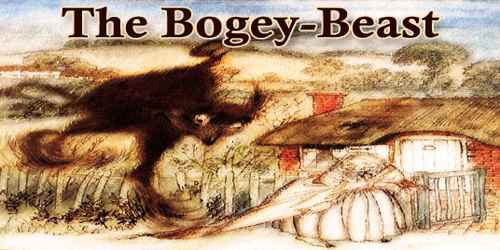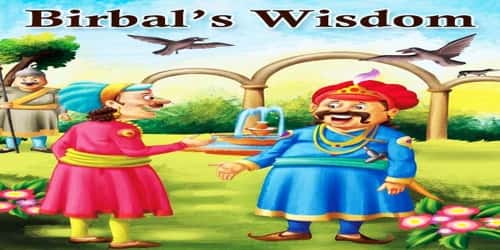Once upon a time and long ago, a poor tailor awoke one morning and realized he had no money for food. Times had been hard, but this was the hardest time of all. He had no food, no warm clothes, and no prospects for steady work. He was at his wit’s end.
He roused himself and walked toward the market, hoping he might find someone to help him. As he was walking, he passed a man dressed in a fine suit. The man’s eyes were bright and his skin gleamed with good health. When the tailor saw him, he felt overcome with envy. “If only I could be like that man,” he said, and then he felt angry. “How dare this man to be fit and happy while I suffer!”
As they passed, the man nodded hello, and the tailor said, “Please, sir, give me some money. I am starving.” The man smiled warmly and reached into his pocket. But then he looked up at the tailor and said, “I’m afraid I have no money with me. I’m sorry, but I cannot help you.”
This made the tailor furious. “Give me your money or you will pay with your life!” he shouted.
“Sir, I’ve told you, I have no money,” the man protested.
At that, the tailor lost his temper and began to beat the man. “Stop,” the man cried. “I cannot help you. Please!”
But the tailor was crazy with jealous rage, and he continued beating the man.
When the man lay on the ground, near death, he looked up at the tailor and said, “The bright sun will bring truth to light.” And then he died.
The tailor reached frantically into the man’s pockets. He found not a single coin. The man had told the truth. The tailor, his rage but not his hunger diminished, dragged the body to the side of the road and left the dead man there.
He went on his way, forgetting altogether the warning.
Many years passed. The tailor had finally found work in a large city, and there, working as diligently as he could, his life turned around. After he had purchased a home with a small shop in the back, he met a wonderful woman, and they married. They had several children, and the tailor’s life was filled with much joy.
Now and then, in the dark of the night, he remembered the man on the road and was haunted by his crime, but most of the time he simply tried to forget the past.
One morning the tailor was in his workshop sewing a fine suit of clothes. His wife entered and handed him a cup of tea, and the tailor smiled at her. But a shaft of bright sunlight burst through the window and shone on the cup of tea. Startled into memory, the tailor glanced up at the shadow cast on the wall. The words of the dying man came back to him. “The bright sun will bring truth to light.” The tailor stared at the reflection upon the wall. He squinted and stared, wondering if his terrible deed would be revealed. But when he looked he saw only the dancing light.
After that day, whenever a beam of sunlight shone and quivered on some bright surface, the reflections would remind the tailor of his crime. At last one morning, when his wife brought him his usual cup of tea, he noticed the shadow on the wall cast by a ray of sun shining on the tray.
“What do you see in this reflection?” the tailor asked his wife.
She looked, then squinted. “Only sunlight,” she said. “Why do you ask?”
“It is nothing,” the tailor said, but his wife persisted. “What do you see?” she asked him.
“Only sunlight,” he said, but the wife knew her husband.
“Something is troubling you, dear husband,” she said. “Please tell me.”
The tailor thought for a moment, and he realized that the truth of his crime was crushing him. Whenever the sun shone, he trembled with fear. He said to his wife, “I have a terrible secret. I can tell no one. There is a curse on me.”
“You can tell me anything,” his wife said. “I love you. I will help you lift the curse. You’ll see.”
The tailor knew he must tell his wife the truth. “Promise me you will tell no one,” he said.
“I promise,” said his wife.
The tailor began, “A man once said to me, The bright sun will bring truth to light.”
“And what truth is that?” his wife asked.
And so the tailor told his wife about that night long ago and confessed his horrible crime. “Whenever the sun shines,” he said after he had completed his story, “I fear the truth will come to light, but always I see only dancing sunlight.”
“And so does everyone,” his wife said, and together they wept and swore to keep the matter their secret.
Alas, sometime later the wife was visiting her friend when a shaft of sunlight burst through the window and danced on the walls. The wife, alarmed at this sight and remembering the dying man’s words, leaned close to her friend. “I must tell you a terrible secret,” she whispered. “You must promise you will never tell a soul.”
Her friend promised not to tell, and the wife told the tale.
The friend could not bear the secret either, and later she shared it with yet another friend who, that very day, shared it with still another. Before a week had passed, nearly everyone in the city knew of the tailor’s murderous crime of long ago.
Not long afterward, the tailor was brought to the court. He was found guilty, and when the sun broke through the windows of the courthouse as he was sentenced, he understood that he could never withstand a dying man’s curse.
















